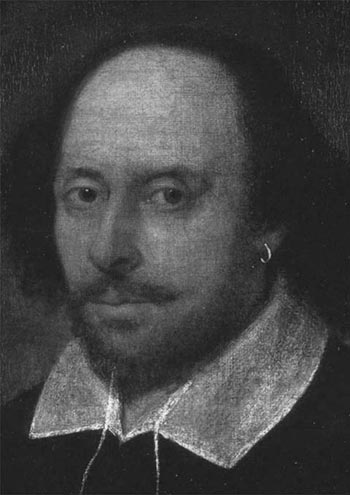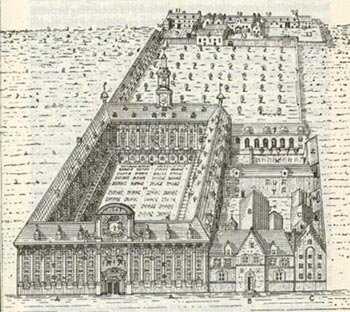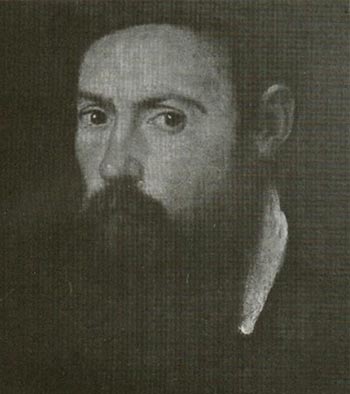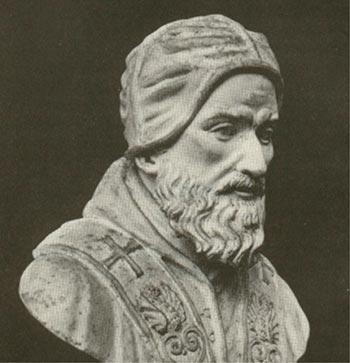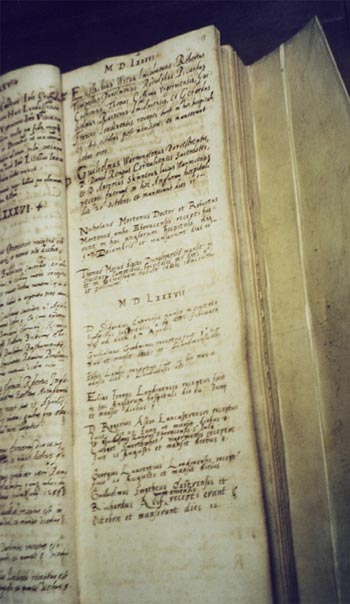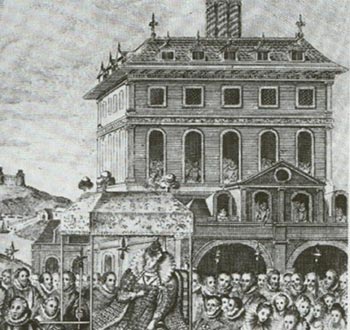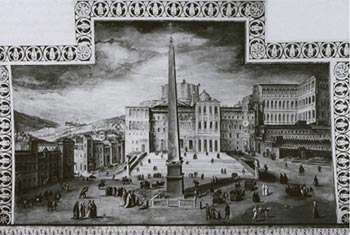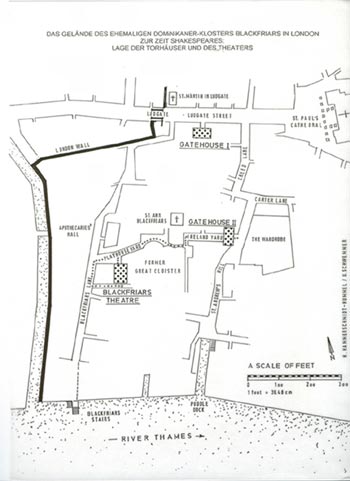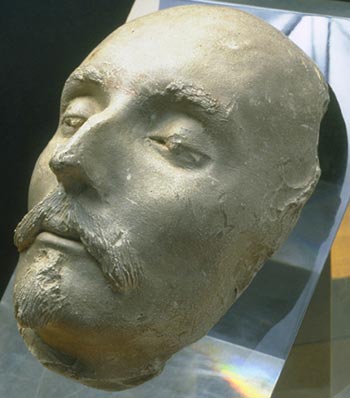Carsten Greiwe: Summary of Dr Lothar Bleeker’s book review:
Hildegard Hammerschmidt-Hummel, Die verborgene Existenz des William
Shakespeare / The hidden existence of William Shakespeare (Freiburg
i. Br.: Verlag Herder) (ngz-online, Neuss-Grevenbroicher Zeitung)
(updated 12 August 2003) - Excerpt:
”Carbones”[the scholarly journal of the Cardinal Frings Society]
report on Shakespeare’s Catholicism
It must have been a scandal for the Anglican England of the Victorian age: The idea that the national poet, William Shakespeare, should have been a Catholic. At that time this question caused vehement controversies but no evidence could ever be established. Now a Mainz researcher reached the breakthrough that the thesis of Shakespeare’s Catholicism is well founded.
Neuss is the city of Shakespeare because of its Shakespeare festival. Neuss is also the city of Frings because the famous Cologne Cardinal [Josef Frings] was born […there]. […] But what have Shakespeare and Frings to do with one another? It may come as a surprise but Frings was the patron of the German Shakespeare Society [founded in 1864]. For many decades Frings was dedicated to the cultivation of the works of William Shakespeare in Germany.
A whole chapter in the autobiography of the grey cardinal deals with the English poet. And there he raised the question whether Shakespeare had been a Catholic. He concluded that this was likely. Now – posthumously - the popular archbishop receives scientific support. ‘If one follows the recently published monograph Die verborgene Existenz des William Shakespeare [The hidden existence of William Shakespeare] by Hildegard Hammerschmidt-Hummel, the reason for the obvious difficulty in reconstructing Shakespeare’s biography is to be found in the fact that he himself blurred the traces in order to escape becoming a victim of the gradually increasing persecution of Catholics during the reign of Queen Elizabeth I’, Bleeker reports.
Hitherto the thesis that Shakespeare had been an adherent of the old faith was mainly based on investigations into his literary works. In one of his lectures Cardinal Frings, too, pointed into this direction. ‘With nearly utmost probability we can deduct from the works that he [Shakespeare] had a great insight into Catholicism, especially into monastic matters, and that he depicted these characters with special love.’ Bleeker says that Hammerschmidt-Hummel has succeeded in presenting a more dense chain of evidence.
According to this, Shakespeare’s father and mother secretly professed and practised their Catholic faith. Further circumstantial evidence was that young Shakespeare had been taught by an underground Catholic and that he had been educated at a Catholic College in France. His marriage before a grey Catholic priest proved to be further circumstantial evidence. For a long time Shakespeare’s ‘lost years’ between 1585 and 1592 had been a mystery, his whereabouts in these years having never been established. Studying historical [English] pilgrims’ books, Hammerschmidt-Hummel was able to prove Shakespeare’s presence in Rome.
Bleeker is of the opinion that ‘this thesis is surely one of the few genuine sensations in the history of Shakespearian scholarship’. He holds that ‘this analysis ranks among the highest scholarly achievements of an expert in this field’. He conceded, however, that the thesis was not based on ‘compelling evidence’. Nevertheless, the density of the author’s circumstantial evidence was so high and the picture drawn by her so conclusive that critics, first of all, would have to prove the contrary.
***
